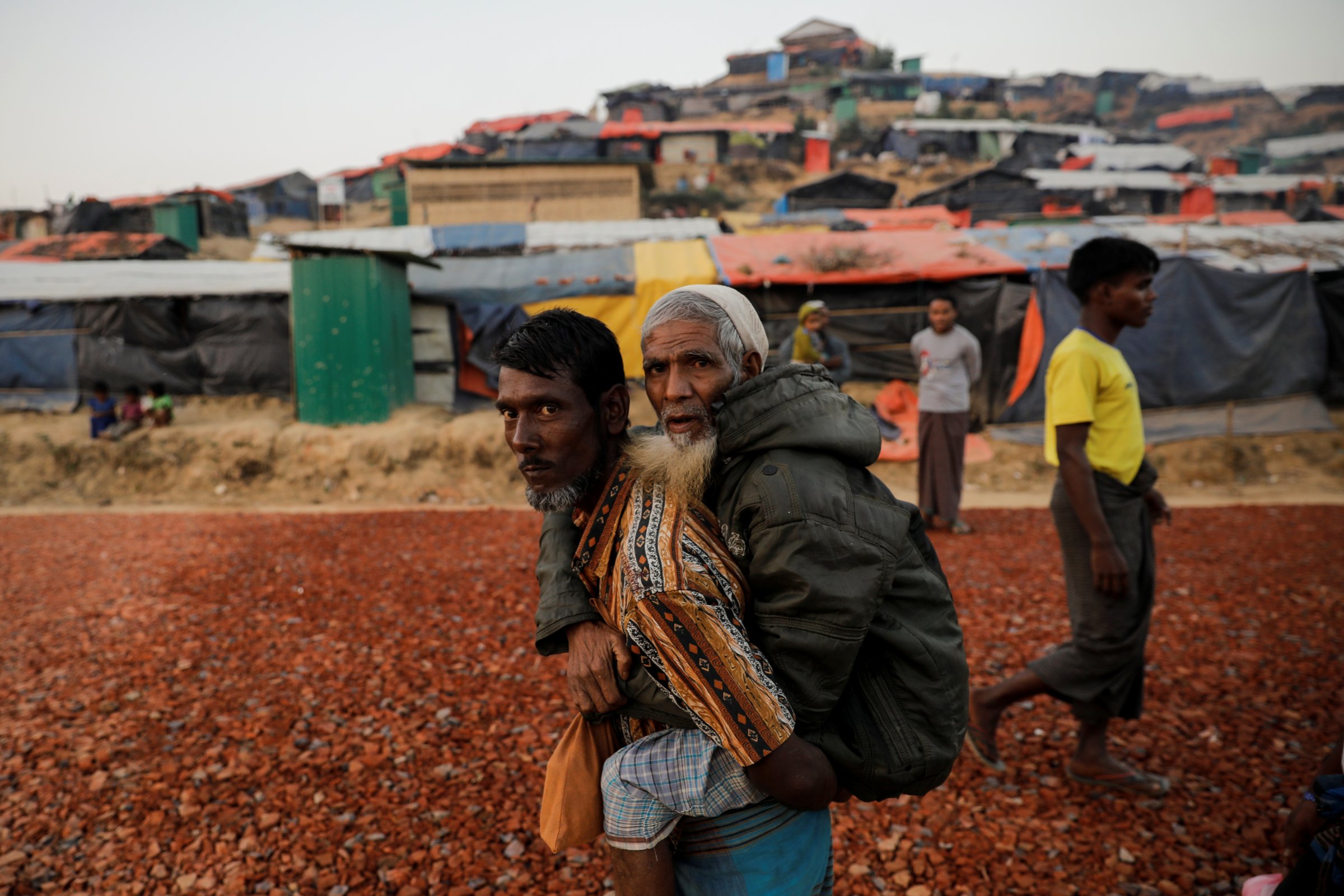
The governments of Bangladesh and Myanmar say they plan to repatriate hundreds of thousands of Rohingya refugees within two years, a timeframe humanitarian actors warn is far too fast for a safe and voluntary return.
The repatriation process will begin on Jan. 23, according to statements issued by both countries’ foreign ministries. The UN Refugee Agency, UNHCR, has not been involved in the discussions.
The agreement proposes returning more than 650,000 Rohingya, a mostly stateless Muslim minority, who fled across the border after a brutal military crackdown on suspected insurgents began in August last year. The U.S. and the U.N. have called the violence a campaign of ethnic cleansing. At least 6,700 Rohingya were believed killed in the month after the campaign began.
Amnesty International called the plans “alarmingly premature,” warning that “returning so soon will be a terrifying prospect” for refugees who survived traumatic scenes of violence and in many cases a lifetime of persecution. Underlying issues such as citizenship and security remain unaddressed.
UNHCR said that “major challenges have to be overcome” to ensure a safe and sustainable return, such as consultations with the refugees themselves, safe transit and future security.
Camps were similarly erected for more than 120,000 Rohingya following communal riots in 2012. More than five years later, the majority of those displaced residents remain barricaded in the squalid encampments, reliant on handouts and prohibited from returning home. Many fear a repeat if the newly displaced are returned too quickly.
Read more: Myanmar’s Crisis, Bangladesh’s Burden: Among the Rohingya Refugees Waiting for a Miracle
While Myanmar and Bangladesh decide their fate, those still confined to makeshift settlements in Bangladesh are bracing for the coming monsoon cycle. The U.N. children’s agency warned that more than half a million Rohingya children are at heightened risk of disease during the storm season.
More than 4,000 suspected cases of diphtheria have been reported in the crowded and unsanitary camps, resulting in 32 deaths. Severe weather risks contaminating water sources and leading to dangerous landslides.
Rights experts warn, however, of the risk that moving the refugees could do little beyond landing them in different camps across the border, where they have less access to life-saving assistance.
More Must-Reads From TIME
- The 100 Most Influential People of 2024
- The Revolution of Yulia Navalnaya
- 6 Compliments That Land Every Time
- What's the Deal With the Bitcoin Halving?
- If You're Dating Right Now , You're Brave: Column
- The AI That Could Heal a Divided Internet
- Fallout Is a Brilliant Model for the Future of Video Game Adaptations
- Want Weekly Recs on What to Watch, Read, and More? Sign Up for Worth Your Time
Write to Laignee Barron at Laignee.Barron@time.com